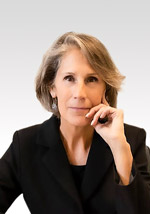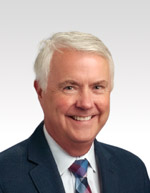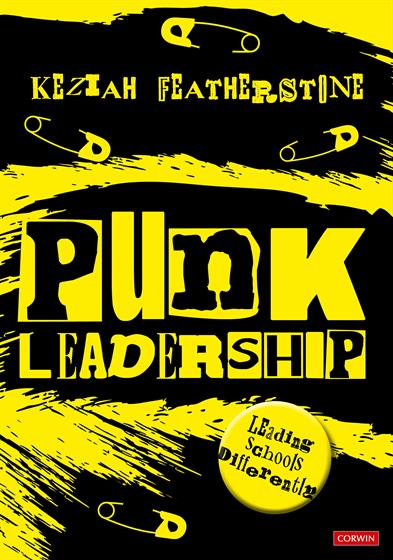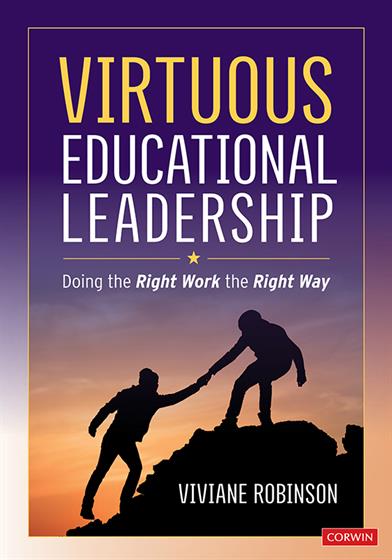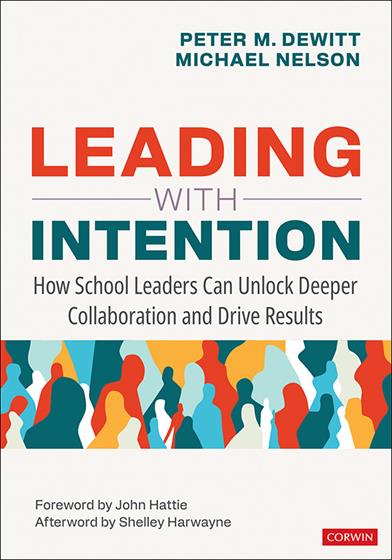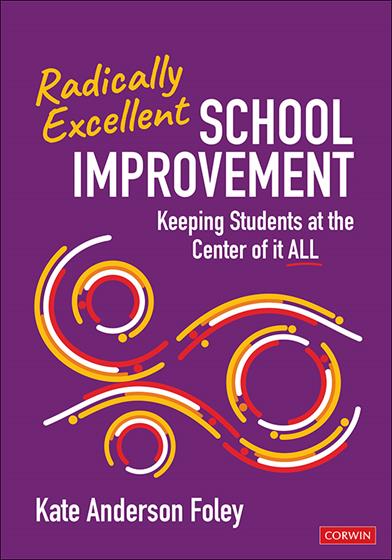[00:00:00.60] WOMAN: Welcome to Corwin's Leaders Coaching Leaders podcast
with hosts Peter Dewitt and Michael Nelson. This podcast is from education
leaders for education leaders. Every week, Peter, Mike, and our guests get
together to share ideas, put research into practice, and ensure that every
student is learning not by chance, but by design.
[00:00:26.17] PETER DEWITT: Michael, here we are for another episode of
Leaders Coaching Leaders. How are you?
[00:00:31.13] MICHAEL NELSON: I'm doing great, Peter. Although, at the time
of this recording, it really has shifted from summer to fall for me in
Washington State. It is cold all of a sudden.
[00:00:41.45] PETER DEWITT: Oh, I am sorry to hear that because it is 73
degrees here. But I'm feeling empathetic.
[00:00:50.11] MICHAEL NELSON: Thank you.
[00:00:51.10] PETER DEWITT: Maybe it just didn't come out that way.
[00:00:54.61] MICHAEL NELSON: Well, we have a great podcast, right?
[00:00:56.71] PETER DEWITT: We do. I love how you're ready to move into
that. You're like, OK, enough of this small talk. Yes, we have Doctor Kate
Anderson Foley. And she has a new book out with Corwin. It just came out a
month ago or so.
[00:01:08.95] Radically Excellent School Improvement. And for those of you
that don't know Kate, you can actually go to her website, the Education Policy
and Practice Group, but widely known for her work in breaking down barriers for
children who have historically been marginalized. She began a career as a
special education teacher, pioneering inclusive practices.
[00:01:28.95] And as assistant superintendent for the Illinois State Board
of Education, she oversaw services to more than 852 school districts, charter
schools, non-public schools, and the Department of Juvenile Justice. And really
interesting to talk to her.
[00:01:44.75] MICHAEL NELSON: It was. We just had a great global
conversation with her. Her book itself actually breaks down school improvement
process into six steps. And from the board level to the administration into
teaching. And she has at the core of everything, which is important to you and
I, right at the center are the students. And from the cover of the book,
everything represents that piece.
[00:02:13.46] And we didn't go specifically into her six steps within the
book. But you can definitely will feel the flow of those six steps that she
highlights through our conversation.
[00:02:26.88] PETER DEWITT: Yeah, definitely interesting to talk to. So look
forward to all of our listeners listening to Doctor Kate Foley Anderson Foley.
Enjoy the podcast.
[00:02:43.83] WOMAN: Picture yourself popularly known among staff members as
the reliable go-to person who makes meaningful change happen. This is possible
when you equip yourself with robust strategies and tools from Corwin's
leadership workshops. Sign up today at corwin.com.
[00:02:59.83] MICHAEL NELSON: Kate Anderson Foley. Welcome to the Leaders
Coaching Leaders podcast.
[00:03:04.78] KATE ANDERSON FOLEY: Thank you for having me. I'm really
excited to be here.
[00:03:07.64] PETER DEWITT: Yeah, it's really good to meet you. And Michael
and I have been looking forward to talking to you. We've gotten to know you
through social media over the past few months, which has been really good. We
can stalk each other in a very polite and professional way.
[00:03:21.88] KATE ANDERSON FOLEY: Exactly. Exactly.
[00:03:24.01] PETER DEWITT: So congratulations on your new book with Corwin.
It's called Radically Excellent Schools. So tell us a little bit about what
brought you to writing the book on Radically Excellent Schools.
[00:03:38.20] KATE ANDERSON FOLEY: So radically excellent school
improvement, keeping students at the center of it all is really about my
cumulative years leading school districts and then State Department and my
tiptoeing into the waters at the federal level. And it's around comprehensively
putting strategic planning in motion.
[00:04:03.35] It's not just-- I am not a fan of the 40-page document that
sits in the shelf, either hardcore or virtual. I'm really focused on
incremental change and supporting the schools who are implementing those
changes. What leads me to the radically excellent side of things is that
there's a relentless focus and drive that is keeping all the adults in the
organization focused on the students. So students are at the center of it all,
meaning at every decision point along the way.
[00:04:42.31] And then within that, there is an intentionality between and
among all the departments. So interconnectedness. So when we do strategic
planning, we build in the interdependencies. For example, well, how is teaching
and learning coupled with the business department? HR. Things like that.
[00:05:07.48] And so again, throughout my work, in my professional roles
before I moved into my private practice, has been around a strength based
system of support and a strength based not for some, but for all. And again,
how do we put this into play. And so that's a long story about why I decided to
do this book and the title of it because we can go into the details between
what that system looks like, coaching, all of that.
[00:05:46.48] PETER DEWITT: No, we will definitely get there. And I know
that you're speaking Michael's language when you say focus on students. As soon
as I heard you say that, I'm like, Michael's going to be following up with you.
[00:05:57.18] KATE ANDERSON FOLEY: You'll have a question or two, right?
[00:06:00.37] MICHAEL NELSON: Yes. There's so much about the language that
you use that's very similar. So I was a school superintendent in a district
right outside of Seattle, Washington for 14 years. And the language that you
use of the interconnectedness of in and between, all of that language is so
critically important whether you think of within the system, outside the
system, including communities and families and all of those pieces.
[00:06:31.62] But keeping the students at the center is something that is
threaded throughout. No matter where I have googled or stalked you, that seems
to be really at the forefront of who you are. Even the cover of your book, the
way it flows of the showing to me-- the cover of your book shows the
interconnectedness totally with the way it flows back and forth.
[00:06:58.98] But then in each center is the circle of with the students.
And I think that just is strong representation of the vision of the book. But I
know people say it, but in your work, how have you seen people put that into
practice, the vision of putting students at the center?
[00:07:23.35] KATE ANDERSON FOLEY: So I'll give you a quick example. I'm
working with a charter school network right now. And we did strategic planning
and we started with that. Like, who are our students? You who are they? All the
demographic, all the profile, whatever you would like to say about it. But who
are our students?
[00:07:44.89] And do you believe that they are capable of learning? That
sounds like such a simple question or such a yada, yada, yada question, right?
But really, it reveals a lot about the organization and the people within the
organization.
[00:08:00.59] So when people say to me, well, yeah, I think most of them can
do it. Yeah, your ear kind of tilts, right? When they say, yes, we know we have
to do better. There we go. Now I can pinpoint in.
[00:08:15.75] And then organizing from an appreciative inquiry. And that's
my process. From a strength based, what are you doing well? What area that
you'd say you're doing well in? And let's start to build from there. And then
put in all of our students.
[00:08:33.63] From there, it's that idea of-- and I'm going to pull this up
if you haven't already thought about asking me about it is the double helix
system of support. I would say this is it. This is the revolutionary piece
because in the past and it's still current-- I even contributed language to say
don't do RTI and MTSS in this form, that the triangle goes up, points up or
points down.
[00:09:09.70] No matter it's funneling students. Instead of flipping it to
say, here's all the students, here's the full continuum of students. So what
are we, the adult, going to do to put in an intervention or strategy or
enrichment that's going to move the student? And therein lies the difference.
[00:09:35.33] Because instead of identifying the students, we are
identifying the intervention. And from that perspective, that's where we keep
students at the center of all of our decisions, be it lesson planning, be it
working together, comprehensively situating the adults, and then support, of
course through all the-- you can call them professional learning community.
Some people call them teacher-based teams.
[00:10:10.38] Whatever that configuration is, then the questions go to that.
What do we want students to know? And then how will we know when they've gotten
it? Well what do we do for the students who haven't gotten it?
[00:10:26.55] And I always put a big capital YET, yet. Doesn't mean they
can't. What are we, the adult, going to do to ensure that they have learned it?
And then finally, what do we do for students who already have it and might be
bored out of their mind or totally checked out and then become behavior
problems as an example.
[00:10:52.61] So what are we doing to engage our students? So this is just a
different way, but it is the way. And I didn't just pull this out. This is what
I put in practice throughout my career and how I've been working with others
and that. So this is a formalized way. I'd love to revolutionize education in a
way. Post-pandemic, we must do something differently.
[00:11:19.07] PETER DEWITT: So I like that very much. And the idea of
students at the center, really important. And I loved what you were saying
earlier about the business office because that's some work recently that has
come up where they play a role in this.
[00:11:33.36] But I want to get back to you were talking about the
interventions in place. And one of the questions that came to mind is something
Michael and I kind of are confronted with all the time, no matter where we are
in the world, actually, is the idea that they will say that's all well and
good, but we can't even get teachers in the classroom. Or the teachers coming
out of school in their pre-service program, they're not always prepared to do
this work.
[00:11:59.13] We've compiled data from hundreds of schools. And one of the
biggest focuses that schools have are tier one interventions because they just
don't naturally-- I guess there are just teachers that don't just naturally
have that experience to be able to do that work. So within your framework that
you're talking about, how do those-- it's almost like you're differentiating
for the adults because you're going to have those seasoned teacher that know
how to do them.
[00:12:26.61] Then you're going to have these-- maybe you mentioned charter
schools, but what we see is a lot of emergency certified teachers that aren't
even exposed to this language. So how does that work with the schools that
you're working with?
[00:12:41.68] KATE ANDERSON FOLEY: Yep. So you said a lot of there. I'm
going to try to unpack some of it.
[00:12:47.92] PETER DEWITT: Sorry. It was long winded, wasn't it?
[00:12:49.87] KATE ANDERSON FOLEY: That's fine. That's fine. First and
foremost, I have advocated that teachers come out with dual certification. They
should come out with not just one undergraduate class of this is special ed.
They need to understand how to universally and comprehensively put a lesson
together for all students. That's one.
[00:13:18.48] Two, they need to be able to see themselves that co-design and
co-deliver of instructional practices coupled with behavioral interventions as
well, or however you want to term a tier one. I call it universal. They need to
have the understanding of the why. And so many programs don't do that.
[00:13:40.54] I have great experience with teachers who are on emergency
certification, alternate pathways. And you're right, they don't know what they
don't know. But within that improvement process, and I'll go back to one of my
examples of when I was working with this group of strategic planning. But
within that strategic plan, district overall, all the school improvement plans
are aligned because it cascades down.
[00:14:14.60] And then we ask ourselves these questions of, so what do the
adults need? What do the teachers need, related service providers, what have
you. And that's the professional development and coaching support that goes
with.
[00:14:30.91] I'm a big believer in building the capacity of the principals
because they are very important. But oftentimes, principals don't have that
skill set as well. So that's why coaching is critical.
[00:14:46.27] The knowledge, the skills, and the dispositions to look at
things in an objective way, understand the data, but then be able to support
and coach the teachers and the teacher teams along that way. And that's where I
have seen just like almost like a vacuum.
[00:15:03.18] Oh, you've got PLCs. Great, that's great. And let the
facilitator do their thing. Yeah, send me a report. Instead of saying, no, no,
no, no, flip it. We are in the business of ensuring that students learn.
[00:15:22.11] So I as the leader, be it a superintendent or principal, what
have you, need to know where students are. What does the data say? But I use a
root of the root analysis.
[00:15:36.84] So many school teams stop at, here's the cause, but let's
address the cause. But instead, go to the lower cause. Go to the deeper cause.
OK, so students are improving. Why is it? They don't come to class. Why is
that? They're on their cell phones. Why is that? And we dig down deep.
[00:15:56.27] This is a very current problem, absenteeism. And now school
districts are banning cell phones. OK, OK. The question, how are you going to
engage students? They weren't engaged before.
[00:16:13.38] They've come back to us socially and emotionally stunted for a
wide variety of factors. So then the teachers who didn't know what to do before
are now given, and by the way, enforced the no cell phone. And some cases and
some districts and probably America's a little bit more resistant if how are
you utilizing artificial intelligence not to swap out work, but to engage our
students.
[00:16:50.55] And also think about the amount of newcomers and the amount of
students who are learning English as a second language and students with
disabilities and others who need to see themselves in the learning. So my work
and this book really digs down deep into that. And I give examples for
professional learning communities.
[00:17:17.41] I give examples for the co-designing, and then I pull it
really far down into the IEP. Because again, I mentioned, this book has a twist
and that I highlight the Supreme Court case of Andrew F. And the higher
standard. Yet when districts say, yeah, we're doing that. We've always had a
high standard.
[00:17:44.85] Great. How do you know what's your evidence of impact? And
then all of a sudden, they say, well, OK, all right, maybe we need more help
with that. And so I show people how to do that. And then through it, coach
them.
[00:18:00.98] So here's the detail of some of the special ed. And, Michael,
I'm sure this very well. Special education is very costly. And that's the
additional cost. But the litigation is extremely costly.
[00:18:18.27] And it also can permanently hurt a relationship between the
school and the family, which I think is very important that we repair. And so
when you get those conditions right, everyone wins, right, because we've kept
students at the center.
[00:18:38.27] What do you need? Ambitious education. How are you going to
get it? That's an access and opportunity. And then how are you going to know
that you're making an impact? Evidence. And that's the professional
development, the coaching that we all need to do.
[00:18:55.51] MICHAEL NELSON: Thank you. You're right. Your book really
details the processes and procedures and really makes you think as a leader
about your own system and ways to make improvements in within that. I would
love to know. I'm sure in all your travels and feedback on your book that you
have some maybe examples of hope.
[00:19:20.95] When you talk with school superintendents, principals,
districts, and you think, there's hope there. When you get that feeling, what
are they doing? In story format, what are they doing that gives you hope tied
to all the procedures and processes that you outlined?
[00:19:43.15] KATE ANDERSON FOLEY: Right. You made me think of a district
that-- when I was in Singapore this spring, one of the schools in Australia
looked at the equity autumn. We besides keynotes and all that, we had master
classes, and I took them through the equity audit in relation to the system and
et cetera.
[00:20:09.04] And when they looked at the data, they were very honest. They
said, oh, wow, we're not doing what we need to do. But then the two people were
talking to one another because one was the director of Student Services. And
she goes, we can do this.
[00:20:26.21] And she started to talk. And her eyes just went like that.
Like, we've got this. We can do this. And by putting that practice into play,
my hope is that they're doing it this year and that they're making a
difference.
[00:20:42.88] The other when I give hope is when-- because I work with
boards of ed too, right. Boards of director. And they're going--
[00:20:50.60] MICHAEL NELSON: Very important.
[00:20:51.43] KATE ANDERSON FOLEY: Yeah, yeah. And I take them through
certain things, and they feverishly take notes. Like, I like what Kate said on
that. Like, we got to dig in deeper on that piece of it. Those things really
make me happy because my North Star has always been advocating for children and
youth who have been voiceless. And that's just the way it is.
[00:21:20.46] And so if I have any say in any way to have improvement for
kids, I'm all about it. Because at the end of the day, they're going to be
adults a whole lot longer than they're going to be in school. And the
trajectory of a child's life can actually change by what we do. You, me, the
community. That gives me hope.
[00:21:49.77] PETER DEWITT: I think-- you're definitely speaking my language
there because I'm a former inclusion teacher and elementary school principal.
But when I started teaching in a high poverty city school, I had a co teacher
who was a special ed teacher, and we really got rid of the status piece.
[00:22:06.90] You're not going to call me the general ed teacher, and you're
not going to call her the special ed teacher and those kind of things. And I
think people miss a real opportunity because still to this day-- and that was
back in the mid to late '90s. Special ed kids were being pulled out into the
hallway to be taught.
[00:22:24.94] And I was like, this is never going to happen. It's not going
to happen. But still to this day, you see those kind of things happening. And
it's sad to me because people are missing out on an opportunity.
[00:22:37.39] I learned so much by co-teaching with the person that I co
taught with. That lessons for me still to this day as a facilitator. One of the
things you said, though, I want to go back to. And I said I was going to the
whole business office idea.
[00:22:54.67] So often, the business office seems like you might have the
director of business or the superintendent of business that's sitting at the
board meeting, but they don't always feel like they're a part of the decision
making that happens within the schools. And I actually just had this the other
day with a group in Ontario too because they're all working on collective
leader efficacy with us.
[00:23:16.34] And so when you specifically mentioned the business office,
what are some things you can say right now for people who think that their
business office is involved because the administrator shows up to a meeting,
but they might not necessarily be involved in the way that you think they
should be?
[00:23:35.52] KATE ANDERSON FOLEY: Yep. So I've always invited myself to the
business office. And because again, some districts were better than others as
far as where we siloed to the point of nobody really knew what anyone was
doing. And so I always felt it was my duty and responsibility to make sure that
they know what I'm working on, et cetera, et cetera. And, of course, a special
education, all grants and everything else.
[00:24:06.50] But it was a way for me to introduce my beliefs and who I am
and how I'm moving the departments or how I'm moving the school district. And
at the same time, it was a way for me to gather information. Do they have the
skill set that they need?
[00:24:21.01] Are they legally literate and financially literate for the
things that we need to work on? So the fiscal, the human, and the resources,
they all need to align. That is part of my equity audit as well and the work
forth after that.
[00:24:38.17] And when we did that-- and for example, now when we've been
doing that, the Department is actually at the strategic planning, been at the
summer institutes. They're now saying, oh, I see. And when you and I share a
goal-- so, for example, I'm going to use responsive classroom as one of the
tools.
[00:25:04.27] So it's a curriculum. All the behavior modification, social,
emotional, et cetera, et cetera. When you and I know what this is about, then
the financial pieces would make more sense. Here's some of the buzz that's
going around lately. Science of reading.
[00:25:22.19] OK. I'm going to be agnostic on this. But they have to
understand then what are the structures that I may need in the office of
teaching and learning to make sure that it's done with fidelity in any
training, any registration fees, things like that. Business services has often
been, in the past-- I have been out since 2018 from the public side. So maybe
some things have changed, but there's always this knock of you spend too much
money in this. What does this have to do with that versus understanding the
whole. And so when you create a holistic, comprehensive system.
[00:26:12.21] Where they have responsibility for part of that goal, then
there's an vested interest to say, so why are we spending that or why do we
need a half time person or a full time? It makes more sense because it's then
shared accountability.
[00:26:31.99] So the design, the details of it, but shared accountability
for me is everything. It's not just this or that. It's not just you or you.
It's us. And then how are we, again-- I always ask, how are we, the adults,
ensure that students have good outcomes?
[00:26:54.64] So it turns that into the we in a very real way instead of
well, I'm the treasurer or I'm the business department. Just report. You know
what I mean. It takes away from that siloed piece to, oh, I see how this works.
[00:27:10.51] Here's another example. Culturally responsiveness in the sense
of who's in our school. Do they represent? How do we bring materials in, et
cetera, beliefs and to that. Well, I would always partner with HR because we
needed to have better interview questions, better scenarios. It was a way for
us to assess.
[00:27:38.69] We want the best. We just don't want somebody. And it was also
a way for me because I was a chief in large urban. It was a way for me to
assess what kind of support are we going to have to provide this teacher, great
teacher, brand new or what have you. But there's areas of support. What are
they? And it was a great way for me to do that. And as well as address bias.
[00:28:10.72] MICHAEL NELSON: You're just taking me back to so many
reflections during my tenure as superintendent, to be honest. And when you were
describing the business office and the systems, for me-- and I actually would
bring the visual, do you know the-- it's a ball, but it's plastic and it's
plastic web. And it can come to this little tiny baseball size, but then it can
expand into a big balloon. And it's all interconnected. It's all a web.
[00:28:43.98] But I would describe our school district as this ball. And we
are all interconnected in this big ball. And you see all of the different
plastic pieces, that open air plastic pieces in the different colors come
together. And the business office is not a separate ball, but in this huge web.
[00:29:03.03] But as the ball would shrink when it would get to the core
baseball sized piece, that's the students. We're all interconnected tightly
around students. And so this visual graphic, it's like, I hadn't thought about
that in years. We just did that.
[00:29:20.00] KATE ANDERSON FOLEY: It still applies, right?
[00:29:21.82] MICHAEL NELSON: Still, yes.
[00:29:23.47] KATE ANDERSON FOLEY: Yeah, for sure. That's a great visual.
I'll probably keep that forever now myself.
[00:29:29.20] MICHAEL NELSON: Use it for all want.
[00:29:30.53] KATE ANDERSON FOLEY: But there's intentionality about that.
Therein lies the difference. You brought up intentionality of how it all works
together.
[00:29:39.20] There are many that just say, it's this. The hierarchy of
organizational charts, those need to be flattened. Our new millennials, our new
people don't see hierarchy, the way maybe people of a certain age do.
[00:29:59.30] And that's OK, but they need to make sense of it. So I've done
some writing on how coaching is really, really important now in this world of
volatility and uncertainty and all the complexities and ambiguity. That is the
world in which we live in right now and probably will be for a long, long time.
[00:30:24.77] And that notion has applied to business, but it's never
applied to education. Education has always been all of the volatile and
ambiguity, all of that complex. I often say education organizations are the
most complex political entity businesses on the planet. Let's understand it.
And then let's roll up our sleeves.
[00:30:57.15] MICHAEL NELSON: Well, Peter, I have a tangent question, but I
don't want to ask my tangent question without giving you free rein to--
[00:31:04.46] PETER DEWITT: No, no, no. This is a good way to start to close
out. I can't wait to hear this tangent. I don't know if you've ever brought
that up before. So this is--
[00:31:15.87] MICHAEL NELSON: Well, Kate, I don't know if you know this
about me, but I love children's books. And I have used children's books as a
way to facilitate adult learning since I became an administrator over 30 years
ago. And my collection of children's books is quite large.
[00:31:34.47] PETER DEWITT: I've been to his house. He's telling the truth
there.
[00:31:37.11] MICHAEL NELSON: And I just use them because I think they have
strong messages not only for students and kids when you read them to your
classes, but the message is that sometimes I wanted to have across my system
comes across much more poignantly in a children's book than if I would have
just stood up and made a speech around that same subject.
[00:32:02.95] So you wrote a children's book, which I've just really
intrigued with. Ida Finds Her Voice. In all that you do, why a children's book?
Why this subject? How does it interconnect to the book that you just wrote for
Corwin Press? Tell us a little bit about that as we close out this interview.
[00:32:26.75] KATE ANDERSON FOLEY: Well, thank you for asking me about that.
So I wrote-- I've had Ida on my mind since 2017. 2016, 2017. And it was as a
result of this increased divisiveness and hatred, almost. And in my role, and I
was living in Chicago at the time. Take the trains to work. That's how we
commute.
[00:32:58.81] MICHAEL NELSON: Sure.
[00:32:59.34] KATE ANDERSON FOLEY: And I noticed in the course, my work at
the schools, the district level, there was a lot of children in need. And then
I look deeper, and I really saw the adults in need. And Ida was a way to, what
you just eloquently said, was to get to not only the children, because we need
to make sure our children are OK. Whoever they are, however they are, they need
to be OK because they're children.
[00:33:30.39] The other side of that is, how do we help parents and how do
we help adults have difficult conversations? So you might not agree with
whatever the thing was. But we need to be able to say, this is a human being.
[00:33:44.64] And so Ida goes through a series of things that are disturbing
not for her, but the people looking at her or as a result of the adults doing
something. And she's trying to make sense of it. And then there's a culminating
event that happens at the park.
[00:34:03.54] And throughout her caring parents to talk about these things
gave words to what she was feeling. And then at the end, very powerfully, joins
others, adults who also have been marginalized, including all of our newcomers
and our people with disabilities, people who might have different family makeup
as other people, race, ethnicity, religious beliefs.
[00:34:35.50] All of those things are OK, even though you might not agree.
But we all have a place in this planet, on this planet. And then how do we talk
nicely and civilly? And how do we help kids make sense of very complex topics?
[00:34:51.89] But what I found is I'm sure you too have found are, parents
are younger, right? So they're the younger of the younger of the younger. And
some of them have missed some of these things. And it goes back to who I am
personally and professionally, and that is I'm a social justice warrior.
[00:35:17.00] PETER DEWITT: Well, thank you for that. And, Michael, I like
that tangent question that you asked. That was very good.
[00:35:23.82] And thanks for being on the Leaders Coaching Leaders podcast,
Kate. It sounds like you were doing fantastic work. And congratulations on the
book, which is Radically Excellent School Improvement. So congratulations on
that. That's fantastic.
[00:35:42.76] KATE ANDERSON FOLEY: Thank you so much.
[00:35:43.94] PETER DEWITT: Thank you for being on the Leaders Coaching
Leaders podcast.
[00:35:47.28] KATE ANDERSON FOLEY: Thank you so much. I really appreciate
the opportunity to just share with you too, and share with everybody.
[00:35:53.58] [MUSIC PLAYING]
[00:35:57.64] MICHAEL NELSON: All right, Peter, we just had a great
conversation with Kate Anderson Foley and about her book, Radical Excellent
School Improvement.
[00:36:07.18] PETER DEWITT: Yeah. And what I appreciate about her is that
when she was talking about the way the book is put together, she really focused
a lot, it seems, on systems. And that's something that can be missing from
schools. I think there's that balance between the feeling that we get when we
go into a school, and this is a strategy that we think can work, to maybe the
other end of the spectrum where she is talking about systems and what to put in
place and what this can look like.
[00:36:36.47] The soup to nuts kind of version as far as professional
development. I think where I wanted to ask a deeper question was just the whole
idea of a lot of principals, I do feel like, hey, I would love to be able to do
this work, but I don't even get time to think about it or superintendents get
the time to think about it because we have unfilled positions or we have
emergency certified teachers. And she was able to speak to that too, which I
appreciate.
[00:37:04.67] MICHAEL NELSON: Yeah, she really did champion that incremental
change kind of philosophy that we've heard. There's definitely lots of books
about small changes, small habits that you can implement that cause the big
ripple of change.
[00:37:20.72] But I just thought the interview-- the part for me, where it
went back to my superintendent days, Peter, was when you really were talking
about the business office and not having them be a silo. And you brought it up
a couple times throughout the podcast.
[00:37:36.75] And I think that is huge significance. Oftentimes, business
leaders within our school systems do not necessarily come through the
educational lens. They come through the business lens. And they are making sure
that there's checks and balances in numbers, but not necessarily tied to what
those checks and balances and numbers mean to programs and to what it means to
students and staff and how to bring them directly into the conversation so
they're a part of it. They can have look-fors all the time rather than just a
teaching and learning director going and begging for more money for maybe
instructional materials.
[00:38:22.25] PETER DEWITT: Yeah, I mean, it's definitely come up in
conversation the work that we've done. And I think one of the things I hope for
when people listen to the podcast is just that idea of how do we involve the
business office. What that equity audit, those kinds of things are those things
that we do as well, and what can we learn from them.
[00:38:41.07] And of course, we're always going to enjoy when somebody says
evidence of impact, because that's the work that we do, and we're looking for
evidence of impact. So that was important. But as always, Michael, very good to
see you. This is what we say. Good to see you too, Peter.
[00:38:59.87] MICHAEL NELSON: Let me get that to you back.
[00:39:01.91] PETER DEWITT: Absolutely. That's how you answer that. It's
really good to see you, Michael. Absolutely. It's good to see you.
[00:39:08.33] MICHAEL NELSON: It's always good to see myself. No, Peter,
it's great to see you. A great conversation once again. Kate Anderson Foley,
just a wonderful, wonderful experience.
[00:39:19.35] PETER DEWITT: Yes. And thank you, everybody, for listening. As
always, we're looking for your feedback, but we're grateful that you took time
to listen to our Leaders Coaching Leaders podcast.

